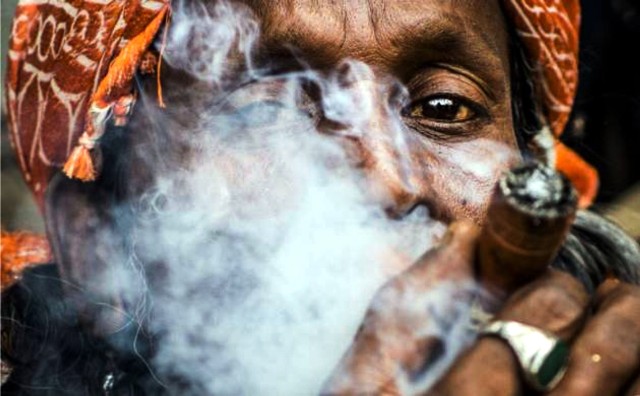Editorial
Still On Tobacco Smoking

Nigeria joined the global community to commemorate the World Tobacco Day, last Wednesday. With the theme, ‘Tobacco: A Threat To Development’, the World Health Organisation (WHO) drew global attention to the dangers inherent in tobacco smoking.
The celebration was also used to sensitise smokers and non-smokers on what is fast becoming one of the world’s highest preventable causes of death.
Statistics released by WHO indicate that over seven million people die yearly from tobacco-related ailments such as cancer, diabetes, kidney and heart failure and other cardio-vascular ailments, while 600,000 also die annually of secondary tobacco consumption.
Similarly and indeed, more worrisome is the warning by the global health body that if urgent steps are not taken by nations of the world, to stem the increasing patronage of tobacco, over eight million primary smokers and 800,000 secondary users will die yearly by 2030. This is, infact, frightening!
Even more worrisome is the fact that over N504 trillion is expended by governments, households and people on tobacco yearly, an amount that could be utilised in human and infrastructural development of the society.
It is regrettable that most of the deaths recorded are among those who live in low and middle income countries of the world, especially the Sub-Saharan Africa, where a high percentage of the population live below the poverty line.
Obviously, it is against this backdrop that WHO’s Framework Convention On Tobacco Control was conceived and of course, domesticated by several countries in order to prevent such horrific consequences occasioned by tobacco smoking. The treaty was adopted by the 56th World Health Assembly on May 21, 2013 and became enforceable on February 21, 2015.
Interestingly, Nigeria is among the 176 countries that ratified the treaty, thus, making it mandatory for the country to evolve ways and means of combating the tobacco endemic.
Suffice it to say that the treaty seeks to protect the present and future generations from the devastating health, social, environmental and economic consequences of tobacco consumption and exposure, by countries enacting laws and applying international standards stating the obvious dangers of tobacco and limiting its use, particularly in public places.
Perhaps, this is why the Minister of Health, Professor Isaac Adewale while Nigeria was marking the World Tobacco Day announced government’s resolve to implement the provisions of the law on tobacco in order to control tobacco smoking in the country. The highpoints of the Nigeria Tobacco Control Act stipulate a ban of tobacco sale to anyone below 18 years, sale of cigarettes in single sticks, smoking cigarettes in public places, among others.
The Tide recalls that the immediate past President of Nigeria, Dr Goodluck Jonathan signed the said law. However, its implementation, to say the least, remains a pipe dream.
That is why we urge government at all levels to take more pro-active measures to curb tobacco smoking and circulation in the country.
The Tide, therefore, implores the National Assembly to , if need be, further review the Tobacco Act to ensure that stricter measures are put in place to control, if not a total ban on tobacco use. The 8th Assembly of the nation’s legislature owes the country an obligation to save Nigerians from preventable deaths and waste of scarce resources on tobacco.
So, as Nigeria, and indeed the global community marked the World Tobacco Day last Wednesday, it is instructive to remind our policy makers to act now or never.
Similarly, the media, churches, schools, families, parents, pressure groups, just to mention a few should be hands in glove in the pro-active anti-tobacco crusade.
We also call for greater sanctions against defaulters. No effort should be spared in saving the lives of the present and future generations of Nigerians.
A stitch in time, they say, saves nine.
Editorial
As NDG Ends Season 2

Editorial
Beginning A New Dawn At RSNC

Editorial
Sustaining OBALGA’s Ban On Street Trading

-

 News3 days ago
News3 days agoAmend Constitution To Accommodate State Police, Tinubu Tells Senators
-

 Politics3 days ago
Politics3 days agoSenate Urges Tinubu To Sack CAC Boss
-

 News3 days ago
News3 days agoDisu Takes Over As New IGP …Declares Total War On Corruption, Impunity
-
Business3 days ago
President Tinubu Extends Raw Shea Nuts Export Ban To 2027
-
Business3 days ago
Crisis Response: EU-project Delivers New Vet. Clinic To Katsina Govt.
-
Sports3 days ago
NDG: Rivers Coach Appeal To NDDC In Talent Discovery
-
Business3 days ago
President Tinubu Approves Extension Ban On Raw Shea Nut Export
-
Rivers3 days ago
Etche Clan Urges Govt On Chieftaincy Recognition

